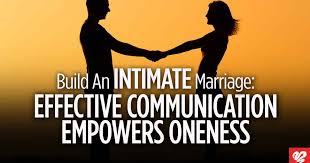Safe Conversations Dialogue
Definition of Safe Conversation
Safe Conversation is a structured method of communication developed by Dr. Harville Hendrix and Dr. Helen LaKelly Hunt, co-creators of Imago Relationship Therapy and founders of the Safe Conversations® methodology. Their work is rooted in the belief that relational disconnection is the source of much suffering, and that learning to communicate with safety, empathy, and respect can transform relationships—whether romantic, familial, professional, or societal.
This approach removes blame, shame, and criticism, allowing individuals to engage in open, authentic dialogue. By fostering emotional safety, deep listening, and mutual understanding, Safe Conversations helps individuals and couples connect rather than react, strengthening their bonds and promoting healing.

Key Principles of Safe Conversations
Mirroring
- Mirroring involves actively listening to the speaker and repeating back their words to confirm understanding.
- This prevents miscommunication and ensures both parties feel heard and valued.
- Example:
- Speaker: "I feel like you don’t appreciate the effort I put into our home."
- Listener: "What I hear you saying is that you feel like I don’t appreciate the effort you put into our home. Did I get that right?"
Validation
- Validation acknowledges that the other person’s perspective is logical and understandable from their point of view.
- It doesn’t mean agreement but rather affirms the other’s right to their feelings and thoughts.
- Example:
- Listener: "That makes sense. I can see how you would feel unappreciated when I don’t acknowledge your effort."
Empathy
- Empathy involves stepping into the other person’s emotional world and expressing genuine understanding and care for their feelings.
- It creates a connection by recognizing emotions rather than trying to fix or dismiss them.
- Example:
- Listener: "I imagine that must feel frustrating and disheartening for you. I’m sorry if I’ve made you feel that way."

Why Safe Conversations Matter
Dr. Hendrix and Dr. Hunt emphasize that most people learn communication patterns that are reactive rather than connective. Many conversations unconsciously trigger defensiveness, blame, or withdrawal, leading to disconnection. Safe Conversations helps replace these destructive patterns with intentional and conscious communication that builds trust, respect, and emotional closeness.
Their research and teachings show that when people feel truly heard and validated, their nervous systems relax, and healing can occur—not only in personal relationships but in workplaces, schools, and communities as well.